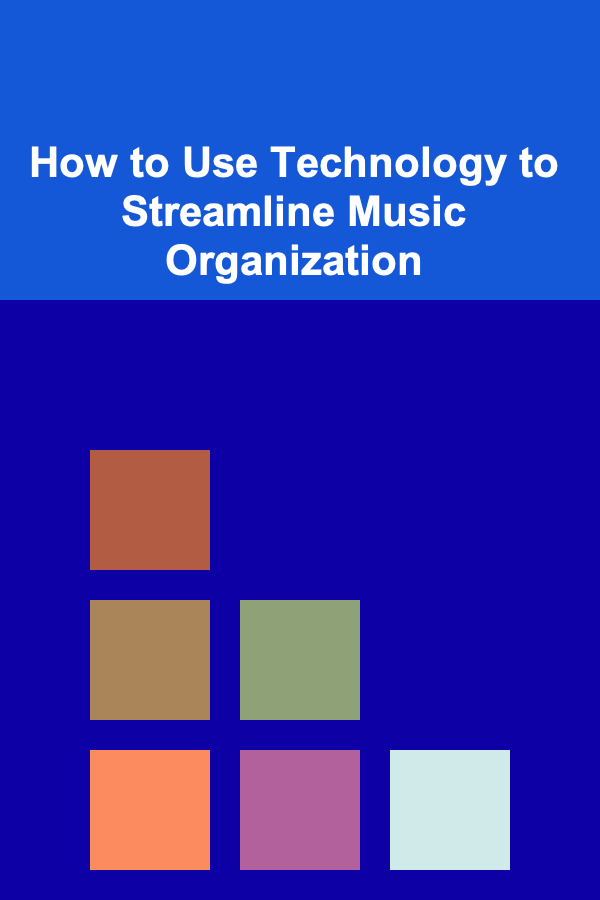
How to Customize Your Job Application Checklist for Specific Industries
ebook include PDF & Audio bundle (Micro Guide)
$12.99$11.99
Limited Time Offer! Order within the next:
Not available at this time

Job hunting can be a daunting process, but with a well-organized checklist, the journey can be much more manageable. Tailoring your job application checklist to the specific industry you're applying to not only makes your efforts more efficient, but it also helps you stand out from the competition. Each industry has its unique requirements, expectations, and practices, and understanding these nuances is crucial for success.
In this article, we will explore how to create an industry-specific job application checklist that ensures your application stands out and increases your chances of securing an interview.
1. Understanding Industry-Specific Requirements
The first step in customizing your job application checklist is understanding the particular requirements and norms of the industry you're applying to. This may include a range of things, from technical skills to soft skills and specific types of experience.
Example:
- Technology/Software Industry: In this field, employers often look for candidates with strong technical expertise, such as proficiency in coding languages, problem-solving skills, and knowledge of software development methodologies.
- Creative Industry: Here, your portfolio and creative abilities are often more important than formal qualifications. Employers are looking for evidence of innovation, creative thinking, and how you approach design or art.
- Healthcare: In healthcare, certifications, licenses, and experience in patient care or medical procedures are often paramount. Along with that, emotional intelligence and the ability to work under pressure are highly valued.
Make sure to research the specific expectations of the industry by reviewing job descriptions, company profiles, and industry reports to understand the core competencies and qualifications sought by employers.
2. Tailoring Your Resume for the Industry
Your resume is often the first impression you'll make, so it's crucial to tailor it to the industry. A one-size-fits-all approach will likely not resonate as well as a customized one. Here are some key elements to consider:
2.1 Industry-Specific Terminology
Certain industries use specific jargon or keywords that you should include in your resume to match the language of the job description. For instance, a resume for a marketing role may need to highlight terms like "SEO," "PPC campaigns," and "content marketing," while a finance position may focus on terms like "ROI," "balance sheets," and "investment strategies."
2.2 Highlight Relevant Skills
Focus on showcasing the most relevant skills for the job you're applying for. In tech, for example, you might emphasize your proficiency in coding languages like Python or Java, while in finance, you'd want to highlight financial modeling and risk assessment.
2.3 Tailor Your Experience
Customize the job experiences listed on your resume to emphasize the most relevant responsibilities and achievements. If you're applying for a position in project management, for instance, detail your experience with team coordination, budgeting, and the successful completion of projects.
2.4 Format and Design
Industries like design, marketing, and media often appreciate creativity in resumes. Consider making your resume visually engaging (without making it cluttered), whereas industries like law or finance might appreciate a more traditional, clean layout.
3. Personalizing Your Cover Letter
The cover letter is where you can convey your passion for the industry and explain why you're the perfect fit for the company. Here's how to customize your cover letter:
3.1 Address Specific Skills and Experiences
In your cover letter, directly address the specific skills and experiences that align with the company's needs. Reference the job description and align your background with the job requirements. For instance, if the job description calls for experience with project management, briefly describe projects you've led or contributed to.
3.2 Showcase Industry Knowledge
Demonstrate your understanding of the industry's trends and challenges. If you're applying for a role in healthcare, for example, you could mention current healthcare policy changes or technological advancements that are affecting the industry. This shows you're knowledgeable and engaged in your field.
3.3 Express Your Passion for the Field
Employers appreciate candidates who are passionate about their industry. Whether it's tech, finance, education, or any other field, showing enthusiasm for the industry and explaining why you chose to pursue it will make you a more compelling candidate.
4. Networking and Building Industry-Specific Connections
Networking plays a significant role in any job application process, but it can be particularly beneficial when customized to the specific industry. Building a professional network within your industry helps you learn about job openings before they are posted and provides insights into company culture and expectations.
4.1 Leverage LinkedIn
LinkedIn is an essential platform for industry-specific networking. Customize your LinkedIn profile to highlight the skills, certifications, and experiences that align with your target industry. Join LinkedIn groups related to the industry, participate in discussions, and make connections with industry professionals.
4.2 Industry Events and Conferences
Attend industry-specific conferences, webinars, and workshops. These are great opportunities to meet potential employers, stay up-to-date with industry trends, and learn about job openings. Many industries, such as tech, marketing, and healthcare, have events that can significantly increase your chances of finding job opportunities.
4.3 Informational Interviews
Conduct informational interviews with professionals in the field to learn more about the specific industry. This will help you understand what companies are looking for in candidates and what skills are in high demand. These interviews can also help you build relationships and find job leads.
5. Researching Company-Specific Expectations
Each company, even within the same industry, may have different expectations for the job application process. Some companies prioritize cultural fit, while others may look for technical expertise. Understanding a company's values and work culture is essential for customizing your application.
5.1 Research the Company's Culture
Read the company's "About Us" page, review employee testimonials, and examine the company's social media channels to get a sense of the company's culture. Is it more formal or casual? Do they emphasize innovation, teamwork, or individual performance? This can help you tailor your application to fit the company's specific culture.
5.2 Use Company-Specific Keywords
Look through the company's website, job description, and social media to identify any specific terms or phrases they use frequently. Incorporate these into your resume and cover letter to demonstrate that you've done your research and understand the company's language and values.
5.3 Tailor the Application Process
Some industries and companies may require additional documents or tests as part of the application process. For instance, creative industries often require portfolios, while finance roles might ask for case studies or modeling tests. Make sure you understand and include these additional materials if necessary.
6. Preparing for Industry-Specific Interviews
Interviewing for a job is the final hurdle in the job application process, and your preparation should be tailored to the specific industry you're applying to.
6.1 Anticipate Industry-Specific Questions
Different industries have specific questions they are likely to ask. For instance:
- In tech, you may face coding tests or questions on algorithms.
- In healthcare, you may be asked about your experience in patient care or handling medical emergencies.
- In marketing, you could be asked about campaign strategies or digital marketing metrics.
Prepare by reviewing common interview questions in your industry and practicing your responses.
6.2 Showcase Industry Knowledge
During the interview, it's important to demonstrate your understanding of industry trends, challenges, and technologies. Make sure you can speak intelligently about recent developments and how they impact the industry you're applying to.
6.3 Dress the Part
Different industries have varying expectations for dress codes. While corporate roles in finance or law may require formal attire, tech startups or creative companies might have a more relaxed dress code. Understand the company's culture and dress accordingly to make a good first impression.
7. Tailoring Your Job Application for Remote Work
With the rise of remote work, many industries now offer opportunities for candidates to work from home. Tailor your application to highlight the skills needed for remote work, including self-discipline, communication skills, and familiarity with remote collaboration tools like Zoom, Slack, and Trello.
7.1 Highlight Remote Work Experience
If you have previous experience working remotely, make sure to highlight it in your resume and cover letter. Emphasize how you managed your time, communicated with your team, and delivered results.
7.2 Show Your Ability to Work Independently
Employers offering remote positions want to know that you can work effectively without constant supervision. Showcase your ability to work independently and your experience managing your schedule and tasks.
Conclusion
Customizing your job application checklist for specific industries is a powerful strategy for standing out to potential employers. By tailoring your resume, cover letter, and interview preparation to align with industry expectations, you demonstrate your knowledge, passion, and commitment. Additionally, networking and understanding company-specific requirements will give you a competitive edge in your job search. With the right approach and preparation, you'll be well-equipped to land your next role in the industry of your choice.

How to Clean and Maintain Hardwood Floors for Long-Lasting Shine
Read More
How to Make the Most of Limited Space for Luxury Storage
Read More
How to Use Technology to Streamline Music Organization
Read More
Top Strategies for Saving on Group Tours and Travel Packages Without Sacrificing Fun
Read More
How To Simplify Your Meal Planning
Read More10 Tips for Choosing the Best Bank Fee Tracker App
Read MoreOther Products

How to Clean and Maintain Hardwood Floors for Long-Lasting Shine
Read More
How to Make the Most of Limited Space for Luxury Storage
Read More
How to Use Technology to Streamline Music Organization
Read More
Top Strategies for Saving on Group Tours and Travel Packages Without Sacrificing Fun
Read More